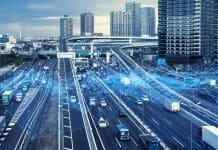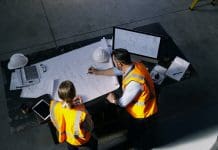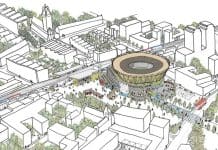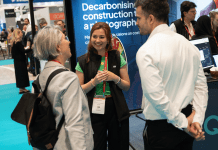Dr Don McLean, IES founder and CEO, discusses how their new IES technology will make it possible to create a Digital Twin of any community to simulate its lifecycle and plan the right solutions, addressing a number of negative cognitive biases
The BBC recently published a very interesting article examining why we are so slow to react to the need for climate action. It described the evolutionary issue of Cognitive Biases – systematic errors in human thinking, once essential to our survival – which draw our attention to immediate threats.
However, these cognitive biases also cause us to underestimate the long-term, more complex challenges that threaten our existence, such as climate change. You can find out more by reading the article for yourself here.
It is interesting how sometimes you come across a different perspective which can help communicate what you are doing. We were preparing our new technology – the Intelligent Communities Lifecycle (ICL) – for launch when I read the BBC article and I was surprised to see that it helped explain some of the issues we were trying to address through our new software aimed at mitigating climate change, before I had even heard anything about cognitive biases.
One point the article highlighted is that our cognitive biases can have either negative or positive impacts. Amongst the ‘negative’ cognitive biases identified, were:
- A perception that the present is more important than the future
- A tendency to care most about the few family generations before or after us
- The belief that someone else will deal with a crisis (“Bystander Effect”)
- An inability to work well in large groups
However, we also have some evolutionary cognitive biases in our favour:
- Our ability to work well in small groups, and
- Our ability to innovate
I think most people can associate with these cognitive biases, not only with regard to climate change, but in many facets of life. We have all, at some point, opted for the “small wins” that will benefit us in the short-term, rather than taking the time to address something which could have a much greater positive impact in the long run. Or take a step back in the hope that someone else will deal with an issue for us.
I don’t think we will be able to collectively evolve our cognitive biases to solve climate change before it is too late for us to experience serious consequences. However, I do believe that the new technology IES has developed will allow us to approach these issues from a different perspective, allowing us to overcome some of our negative cognitive biases, whilst enhancing the positive ones with respect to climate change.
IES’ existing technology – the IES Virtual Environment (IESVE) – allows users to address building design and compliance and also the retrofit of existing buildings. We estimate that use of the IESVE by IES and our users has already helped avoid the need for 30 power stations to be built.
However, whilst this is an admirable achievement, it does not fully address what is needed.
That is why we have been extending our existing building energy analysis technology to facilitate lasting change across the entire lifecycle of the built environment – from Citizen Level up to Companies, Campuses, Communities, Cities and whole Countries.
Our new technology will make it possible to create a Digital Twin of any such community to simulate its lifecycle and plan the right solutions for now and into the future. It will help users analyse the energy performance of multiple buildings and can also address the simultaneous operational performance of any number of buildings and the energy systems supporting them to significantly improve efficiency and reduce carbon emissions.
I believe we have created solutions which will address a number of the negative cognitive biases which the BBC article highlighted. In particular, those which perceive the present as being more important than the future and our tendency to care most only for the few generations that surround us. We are shifting the focus from the present and providing technology that can ensure the decisions made now will prevent legacy problems that could impact many generations to come.
Not only that, but we are presenting ways of engaging the Bystanders. With new tools to visualise energy use across the built environment in an engaging and understandable manner we can involve more people in the process of improving energy efficiency within their communities. All we need now are good Leaders to take control of the crisis and put effective action plans in place (something I will cover in a subsequent blog).
The tools will also take advantage of our positive cognitive biases in two ways:
- They will play to our strength of working well in small groups – by providing technology which allows a massive issue such as Climate Change to be broken down into manageable groups e.g. a community, a campus or a company.
- They will take advantage of our ability to innovate – 5G, low-cost sensors, IES technology, AI and Energy Trading will form part of the innovative solutions required to mitigate climate change and are all things we will continue to incorporate into our technology.
The technology is here. However, what we need now is Leaders who can take this technology and facilitate change from the bottom up. In my next article, I will consider the role of these Leaders in tackling Climate Change and how we can support them to make a real impact.
To find out more about our new ICL technology visit www.iesve.com/icl
Dr Don McLean
IES founder and CEO














